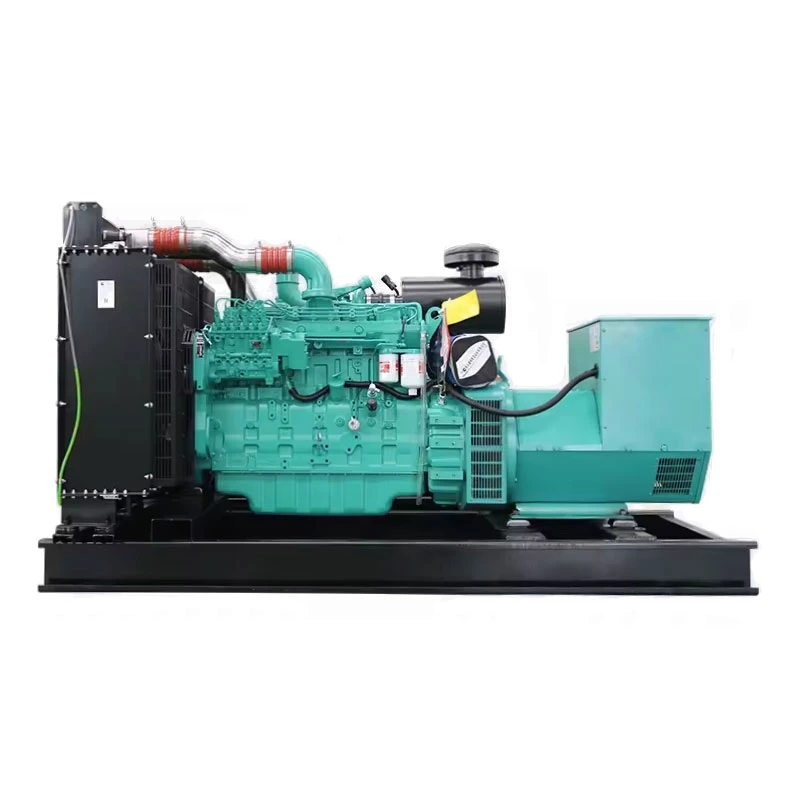The Essential Guide to Diesel Generators for Construction Projects

Introduction
In the realm of construction projects, a reliable source of power is crucial to keep operations running smoothly. Diesel generators have long been a go-to solution for providing the necessary electricity in construction sites where traditional power sources may not be readily available. In this comprehensive guide, we will delve into the world of diesel generators, exploring their benefits, applications, maintenance requirements, and key considerations for selecting the right generator for your construction project.
1. Understanding Diesel Generators
Diesel generators are a type of power generator that uses a diesel engine to convert mechanical energy into electrical power. These generators are known for their robustness, efficiency, and durability, making them well-suited for demanding applications such as construction projects. Diesel generators come in a wide range of sizes and power capacities, allowing them to meet the specific needs of different construction sites.
2. Benefits of Diesel Generators in Construction Projects
2.1. Reliability: Diesel generators are highly reliable and can provide continuous power supply for extended periods, ensuring that construction activities can proceed without interruptions.
2.2. Fuel Efficiency: Diesel engines are known for their fuel efficiency compared to other types of power generators, making diesel generators a cost-effective option for construction projects.
2.3. Durability: Diesel generators are built to withstand harsh working conditions commonly found in construction sites, making them a durable and long-lasting power solution.
2.4. Portability: Many diesel generators are designed to be portable, allowing them to be easily transported to different locations within a construction site as needed.
2.5. Quick Start-Up: Diesel generators can be started up quickly and provide power almost instantaneously, which is essential in construction projects where downtime can lead to costly delays.
3. Applications of Diesel Generators in Construction Projects
3.1. Powering Tools and Equipment: Diesel generators are commonly used to provide electricity for construction tools and equipment that require a reliable power source to operate efficiently.
3.2. Temporary Power Supply: In situations where a construction site does not have access to the grid or when grid power is unreliable, diesel generators can serve as a temporary power supply to keep operations running smoothly.
3.3. Emergency Backup Power: Diesel generators can also function as backup power sources in case of power outages or emergencies, ensuring that critical systems and equipment remain operational.
4. Selecting the Right Diesel Generator for Your Construction Project
4.1. Power Requirements: Determine the power capacity needed for your construction project based on the total electricity demand of all tools, equipment, and systems that will be powered by the generator.
4.2. Size and Portability: Consider the physical size and portability of the diesel generator to ensure that it can be easily transported and positioned in different areas of the construction site.
4.3. Fuel Efficiency: Look for diesel generators that offer high fuel efficiency to minimize operating costs over the lifespan of the generator.
4.4. Noise Levels: Construction sites can be noisy environments, so consider the noise levels produced by the diesel generator and opt for models that are designed to operate quietly.
4.5. Maintenance Requirements: Evaluate the maintenance requirements of the diesel generator, including regular servicing, fuel filter changes, and oil checks, to ensure optimal performance and longevity.
5. Maintenance and Care of Diesel Generators
5.1. Regular Servicing: Diesel generators should undergo regular servicing and maintenance to keep them in optimal working condition. This includes checking and changing oil, fuel filters, air filters, and other components as needed.
5.2. Fuel Quality: Ensure that the diesel fuel used in the generator is of high quality and free from contaminants that could affect the performance of the engine.
5.3. Battery Maintenance: Check the battery of the diesel generator regularly and keep it charged to ensure that the generator can start up when needed.
5.4. Cooling System: Monitor the cooling system of the generator to prevent overheating, which can damage the engine and reduce the lifespan of the generator.
5.5. Operating Environment: Position the diesel generator in a well-ventilated area to allow for proper air circulation and cooling during operation.
6. Safety Considerations When Using Diesel Generators
6.1. find out this here : Diesel generators produce exhaust fumes that contain harmful gases, so it is essential to operate the generator in a well-ventilated area to prevent the build-up of toxic fumes.
6.2. Fire Prevention: Diesel generators can pose a fire hazard, especially when refueling. Ensure that all safety precautions are taken when handling fuel to prevent accidents.
6.3. Electrical Safety: Follow all electrical safety protocols when connecting the diesel generator to construction equipment to prevent electrical hazards and accidents.
6.4. Training and Awareness: Provide adequate training to construction site personnel on the safe operation and maintenance of diesel generators to prevent accidents and ensure proper usage.
7. Environmental Impact of Diesel Generators
7.1. Emissions: Diesel generators emit pollutants such as nitrogen oxides (NOx) and particulate matter, which can contribute to air pollution and have adverse effects on human health and the environment.
7.2. Mitigation Measures: To reduce the environmental impact of diesel generators, consider implementing mitigation measures such as using low-sulfur diesel fuel, installing emission control devices, and adhering to local regulations on emissions.
7.3. Alternative Power Sources: Explore alternative power sources such as solar panels, wind turbines, or hybrid systems to supplement or replace diesel generators in construction projects and reduce reliance on fossil fuels.

Conclusion
Diesel generators play a vital role in providing reliable and efficient power supply for construction projects of all sizes. By understanding the benefits, applications, maintenance requirements, and safety considerations associated with diesel generators, construction site managers can make informed decisions when selecting and utilizing these essential power sources. With proper care and attention, diesel generators can help ensure the success and timely completion of construction projects while minimizing downtime and disruptions.
